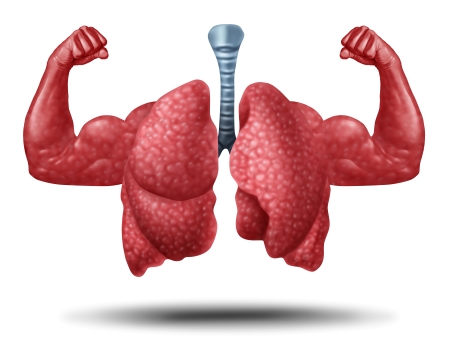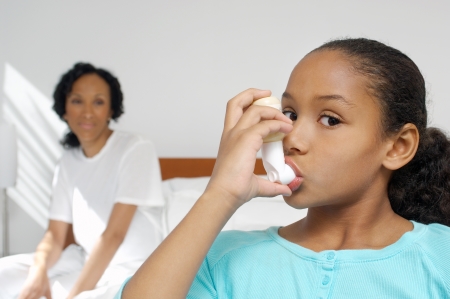Eating and breathing are not as unrelated as you might think! If your doctor has diagnosed you with COPD or Asthma, your diet is more important than you know.
We know you will avoid “trigger foods” that make it difficult for you to breathe. But, far beyond your personal triggers, there’s more information you need to know. For example, how what you eat affects your breathing.
Eating and Breathing: The FLASS Forbidden Menu!

Eating and Drinking Are Closer Related Than You Might Ever Realize. COPD Patients May need to Rethink Their Diets.
The American menu is not always compatible with foods that are healthy for our lungs. Likewise, experts have stated that the traditional American diet features foods that are actually bad for our lungs.
Thus, in this blog, you will find our FLASS list of forbidden foods. Actually, we wish we had the power to forbid these foods for all of our respiratory patients. You see, there are foods that intrinsically affect you adversely if you are fighting COPD and asthma.
Being Antisocial at Your Next Picnic or Party
Sadly, you will notice that these foods are the foods of social interaction. For generations, we have been breaking bread when we bond as friends or family.
However, sadly, we seem unaware of what ingredients might be in that bonding “bread.” Take a look at our FLASS Forbidden Food List and see what we mean.
Eating and Breathing with the FLASS Forbidden Foods in Mind
We need to become mindful that we can breathe better if we avoid eating certain foods. (However, we do cringe at having to bring you the unwelcome news.)0
1. The First and Worst Offender: White Bread

White Bread and Processed Meats Can Be Bad For Your Lungs as Well as Your Waistline.
White bread is the staple of Spring and Summer sandwiches. Americans love the smooth texture and buttery melt-in-your-mouth flavor of this bread. The broken and refined grains in white bread degrade it to a simple carbohydrate.
- Firstly, it has significantly less nutritional value.
- Additionally, this type of bread instigates an increased inflammatory response.
- It sets up a cycle of making it “more difficult for your body to move blood.”
- Finally, the stress on your heart and lungs increases after you eat white bread. Simple cause and effect.
There Are Whole-Grain Alternatives to White Bread
Therefore, we urge you to select hearty whole grains and wheat. Doctors and staff at FLASS assure you that If you eat real wheat bread for six weeks, you will soon “forget” how much you loved the white bread. Additionally, you might begin to breathe better.0
2. Eating and Breathing Vs. Processed Meat
Yes, we have just begun the season for processed meat: wienies, sausages, bacon, ham, and lunch meat. They might be great for picnics, but processed meats are unkind to the lungs. “These processed meats typically have nitrites added to them that help with extending the shelf life of the food.
However, like white bread, these meats also propel the body into an inflammatory response. They directly cause stress to the pulmonary system.
3. Extra Salt Won’t Give You Extra Breath: Bad for Eating and Breathing
Now we know that salt is not intrinsically bad for us. In small quantities, it is essential. However, if you have asthma or COPD, you should monitor your salt intake? You see, an overindulgence in salt will dehydrate your body.
As you dehydrate, inflammation again catches you in its deleterious (harmful) cycle. Put simply, it increases the stress on your respiratory system.
We aren’t asking you to give up salty goodness. Just limit it. You might have to avoid those favorite French fries or find a salt-free popcorn topping.
4. Don’t Let Soda Seduce Your Lungs
When you have COPD or Asthma, you might re-think what you drink as well as what you eat. Would you believe sodas top the list of things you should not consume?
The bubbly carbonation you love leads you into gas and heartburn, which are both stressful enemies of good breathing. Plus, we remind you. Be aware that the caffeine in these drinks “increases heart rate, respiration rate, and blood pressure.” Of course, these reactions together can exacerbate your breathing difficulty.
5. Eating and Breathing: No More Happy Meals!
It is surprising to note that the innocent-seeming hamburger can actually increase your tendency to wheeze. We all know fast food is bad for hearts and stomachs.
However, we might be unaware of its effect on the lungs. We have two reasons for you to avoid those delicious, cheap burger indulgences.
- Just think of the processing of the meat, as we detailed above.
- Plus, medical research has proven these foods have high saturated fat content. It’s a double whammy for patients with COPD or asthma.
Why Fast Food and Breathing Don’t Mix

Did You Know That Healthy Eating Strengthens Healthy Breathing? What You Eat Matters to Your Lungs.
First, that fast-food burger includes processed meat, which we just touched on. Secondly, fast food burgers are exceedingly high in fat.
If your doctor never warned you that this type of meal affects your respiratory system, we are telling you now. Beware. “Meals with high saturated fat content have been shown to exacerbate symptoms related to COPD and asthma.”
6. The Unhealthy Side of Whole Milk
There are few foods that can outshine the healthy reputation of cold, creamy whole milk and dairy products. However, for asthma and food allergy patients, it is controversial.
Technically, studies have proven, and this will surprise you, milk does not cause or enhance asthma.
However, if you are allergic to it, milk can certainly trigger your asthma. “Milk happens to be one of the most common foods to be allergic to!
Food allergies have their own set of symptoms. However, if you have asthma, “certain foods can also cause a flare-up or an asthma attack.”
Additionally, experts state, “An allergy to milk can cause all of these symptoms, plus symptoms you experience from asthma, like bronchi constriction, shortness of breath, and wheezing.”
A Final Word on Milk and Lungs
If milk does not give you symptoms, you do not have a milk allergy. However, you’ll see cases online where dozens of people with asthma believe getting off milk helped them.
Thus, if you think you notice you feel better without milk in your diet, discuss the issue with your doctor. Don’t rely on superstitions or the Internet about milk intake and lungs. Milk allergy and asthma are easily confused.
Terrific Take-Aways from Eating and Breathing with Asthma and COPD

Remember, What You Eat Can Cause Exacerbation of Asthma or COPD. Avoid Food Triggers and Keep Your Rescue Inhaler Ready.
As you can guess, not only are the foods on this FLASS list bad for your lungs but coincidentally, very fattening. Thus, like countless self-help articles about habits for eating and breathing, we close this one by advising you to make healthy choices.
Try to ignore the siren call of those unhealthy foods that will only make you breathless– and probably fat.

